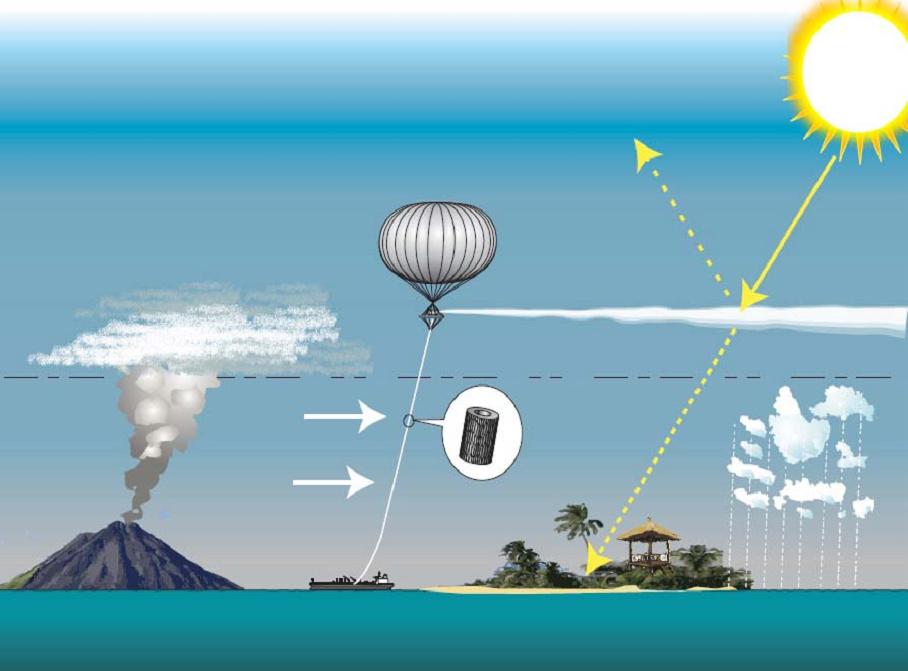
Clive Hamilton’s Earthmasters, at least from what we’ve seen from a few selected chapters, illustrates the multifaceted issue surrounding the viability and ethics of geo-engineering as a way to reverse impacts from climate change. He displays a broad assortment of proposed geo-engineering technology ideas, showing the potential benefits and consequences of each of them. For instance, he describes carbon dioxide removal and solar radiation manipulation/management as the primary methods, and then goes on to list a few other lesser known proposals, such as the deforestation of Siberia and Canada in order to increase the albedo from the ground below.
One of the core arguments in favor of implementing geo-engineering technology is that the amount of effort we would have to put in to persuade people in power to significantly reduce carbon emissions seems close to impossible, and therefore geo-engineering is a quick and economically efficient way to mitigate the issue. The primary argument against this is that geo-engineering does absolutely nothing to solve climate change (assuming there is such a thing as “solving” such a problem) because the fossil fuel industries are completely excused of responsibility for their actions, making it so they continue production like any other day. In some ways, this actually helps the industries, because the extraction techniques used to create energy out of fossil fuels is being utilized directly for geo-engineering technology, which has been demonstrated through the movement to begin usage of so-called “clean coal”.
Another key argument is that many of the proposed geo-engineering technologies don’t even do anything about carbon emissions, but instead focus on re-engineering other parts of the earth, such as reflecting sunlight away from the earth in order to reduce heat radiation.
Geo-engineering, in my opinion, is quite possibly the worst available solution for mitigating climate change. It plays no part in addressing the reasons we got to this point in the first place, and is in fact a continuation of our anthropogenic impact. Also, many scientists who advocate for geo-engineering technology don’t seem to prioritize the safety of the people who would likely be affected by it, primarily in underdeveloped countries. Not only is it merely a band-aid for a systemic issue, but it could have dire impacts which are possibly worse than some effects of climate change itself. I’m not really sure what the best way forward is; there are a lot of ideas out in the open which seem equally viable and risky, and maybe even impractical. But I do know that geo-engineering technology is not the solution.









